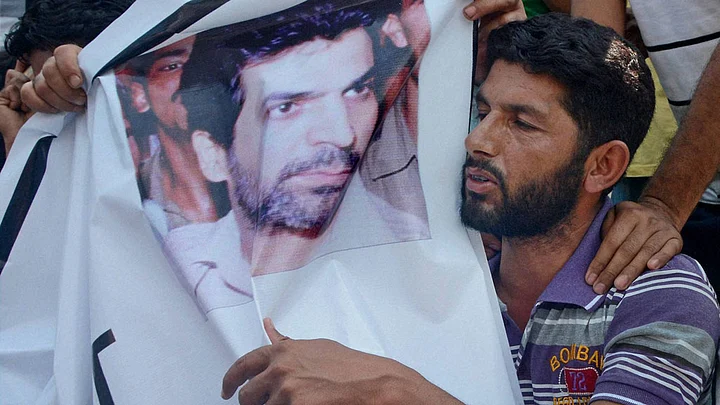The Need for Witness Protection
- Late B Raman never stated that Yakub innocent, he advocated compassion to reciprocate Yakub’s help to Indian agencies.
- Yakub provided valuable intelligence and was given promise of reprieve.
- There is a need to protect genuine witnesses.
- The effort in implementing a fool-proof protection system essential, given the rising crime graph in our country.
The Yakub Memon execution raises several issues pertaining to the administration of criminal justice, apart from the fundamental misgiving over the justification for awarding the death sentence. None of those who pleaded for clemency to Yakub ever took the position that he was innocent. The focus was on the reported assistance he gave to Indian law enforcement officials in unravelling the conspiracy behind the 1993 Mumbai blasts.
There was more than a suggestion that he was betrayed by Indian officials who had promised him a substantial reward for helping them out with missing details. An unpublished column by a dear friend, the late B Raman, an additional secretary in our external intelligence outfit, RAW, was also cited in support of the demand for sparing Yakub’s life.
Conveniently glossed over was the fact that Raman never stated that Yakub was free from criminal liability. He only advocated compassion to reciprocate Yakub’s help to Indian agencies. So, ultimately, all of this boils down to whether Yakub was given unethical inducement. The facts may never be known.
No Promise?
CBI officials who handled the investigation do not subscribe to the claim that Yakub was given a promise. They, however, did concede that they were ‘cultivating’ him. Obviously they cannot reveal anything more. It is not known whether Yakub was ever considered for being treated as an approver, which our criminal procedure permits.
Yakub’s role in executing the diabolical plan was not insignificant. He knew too much to be ignored, and there is a strong feeling he could have intervened at the right time to prevent the commission of the cruel crime. Hence it was unlikely that he was ever given a promise of reprieve.
This brings me to the allied question: Just as an accused or those close to him try to buying up a crucial witness for the prosecution, can the latter buy or intimidate a potential witness? In my view, neither is ethical. Facts of a crime cannot be twisted to support a prosecution story. They have to be stated in court in the form in which they had been unearthed by the prosecution. Courts have always frowned up embellishment of the prosecution story. ‘Dressing up’ evidence is a double-edged weapon. It can sometime backfire demolishing the entire prosecution story and allow the guilty to go scot free.
Protect Genuine Witnesses
There is at the same time a need to protect the genuine among the witnesses so that he or she testifies credibly with absolute respect for truth. We all know how difficult this task is in the current environment in which respect for law is minimal and the whole criminal justice system is riddled with delay and corruption. The basic question is: Can we enact a law that gives statutory protection to all genuine witnesses?
Most of the countries in the West have led the way. The US witness protection programme that applies to federal prosecutions has been hailed for its thoroughness and seriousness. Current practices in that country involve changing of names of crucial and threatened witnesses and their relocation at a place far away from their normal place of residence. This is worth an experiment.
It is a matter of regret that we in India are yet to have a full-fledged Witness Protection Act, although noises have been made in that direction very often. The farthest we have reached is the provision for an in camera trial, especially to protect the women victims. Also, physical protection is sometimes extended under special circumstances where great public interest is involved.
Godhra Probe Experience
This was done in the case of Godhra riots trials recently, very much to the satisfaction of witnesses. It was heartening to hear that a field survey done by a researcher from a renowned US university confirmed the efficacy of the arrangement for protection organised by the Supreme Court-appointed SIT. The shifting of trial from one state to another has also helped in a few cases, as in the Best Bakery trial.
But all this is a half-hearted move towards the ultimate objective of ensuring that a victim of crime or his/her associates testify fearlessly before a court summoning them. It is no substitute for a statutory prescription supervised by courts. A fool-proof protection system is cumbersome and expensive to implement.
But the effort is worth all that, if one takes into consideration the rising crime graph in our country, and the brazen attempt made by political thugs to intimidate or liquidate vital witnesses. The Law Commission of India has produced several papers from time to time on this subject. They deserve serious consideration.
(The writer is a former CBI Director)
